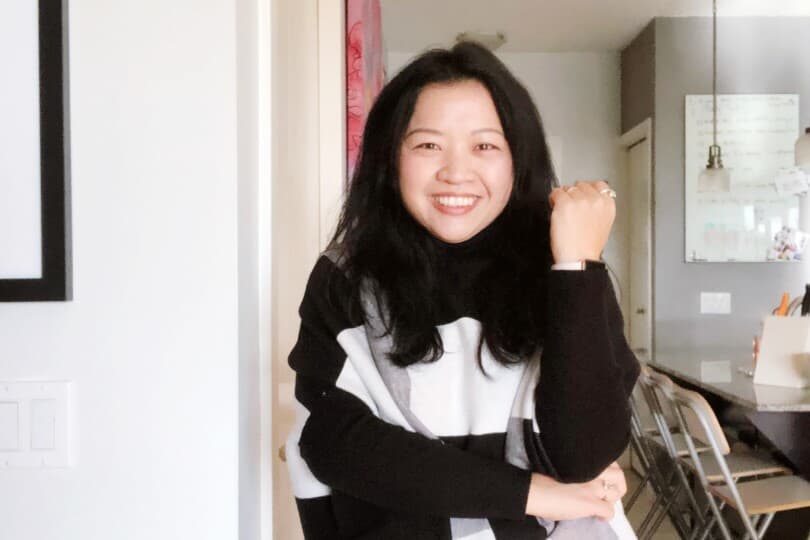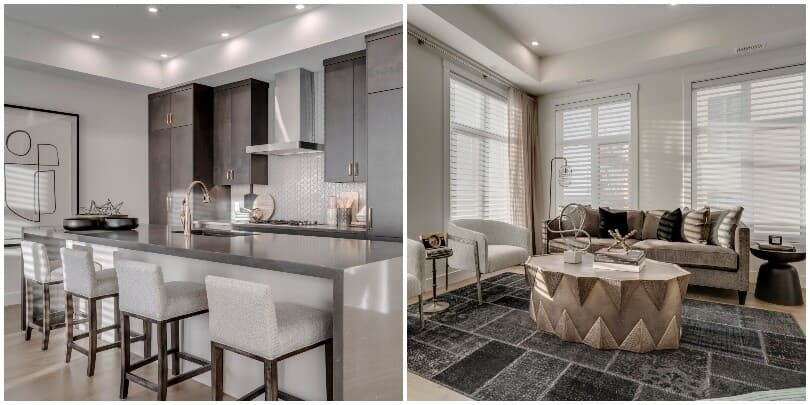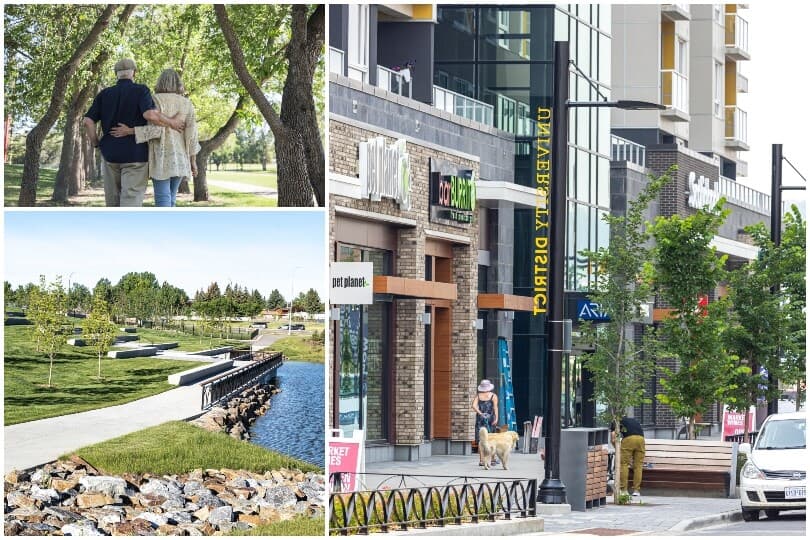The Joy of Downsizing
Making the decision to downsize isn’t always an easy one. While it can be an exciting first step in a new stage of life, it can often be difficult to know where to start.

Depending on the size of home you’re moving from, it can feel intimidating sorting through years of stuff and deciding what to keep and what to donate, toss, or sell. We connected with Helen Youn, a Master KonMari Consultant and Trained Professional Organizer, to explore the benefits of downsizing and common questions you may have as you begin to downsize.

I’m on the fence if I should downsize my home, what are some of the benefits?
“I honestly believe when you downsize your home, you can upgrade your lifestyle. You have the opportunity to simplify your life and live more intentionally and joyfully. Here are some of the benefits I experienced when I downsized my home:
1. It’s easier to clean
I love having a home that’s easier to clean because we end up doing it more often and who doesn’t like living in a clean space? Having a clean space also makes it much easier to entertain spontaneously.
2. It forces you to simplify
I think de-cluttering is like a muscle and the more you exercise the muscle the better you’re going to be at it. When you live in a smaller home, there isn’t really a spare room or extra storage where you can hide everything and because of that, you have to be more critical about the things you own. Each item has to serve you and bring value in order for you to want to keep it. When you have too many items, it can hold you back from living your ideal life.
3. You save more money
Your utilities are going to cost less because you have a smaller space that you’re paying for – a smaller space means less money to heat and cool it. Similarly, a small floor plan also requires less décor and furnishings resulting in you spending less to style and design your home.
4. You have more time
When you don’t have as much to clean and maintain or as many items to put away, you end up having more time to do the things that bring you joy. When you live in a condo, there’s no shoveling the snow in the winter, there’s no mowing the grass in the summer, and that frees up more time to spend with family and friends or doing the things that make you happy.
5. No wasted space
When you live in a smaller home, no room is wasted because you’re using every single square inch to its maximum capacity. When I lived in a larger home, we had rooms used only for storage but we were still paying for the heat and utilities for that space – just because you’re not actively using it doesn’t mean you’re not paying for it.
6. Ability to be more centrally located
I love being centrally located to the inner city – I love to get and explore my surroundings, I love to go out to different restaurants, I love to explore art exhibits, and just being able to walk around the neighborhood. It’s easy for us to do multiple things in a day in a central location rather than having to schedule our entire day around one event and have to drive a long time to get to that place.
7. The city is your backyard
When you live in a small space you have more time to go out and do fun things, so it’s great having a vibrant city as your backyard. We’re able to go out and explore different parts of the city and as a result, we became a lot more active. There are plenty of nearby parks to walk, ride our bikes, or use the playgrounds so I don’t miss having a backyard and the maintenance that came with it. There are plenty of great amenities just around the corner. We have a private balcony at our condo where we have space for outdoor dining and a garden so I don’t feel like we are missing out on anything.
8. Upgrade your lifestyle
A lot of people associate downsizing with a downgrade, but I want to challenge you to think differently. I honestly believe when you downsize your home you can upgrade your lifestyle. For example, having a smaller space means having less to furnish so when you buy something, you can choose to buy better. When you need to do renovations, because you have less square footage, it’s automatically going to cost you less so you can choose better materials and not be forced to cut corners to fit your budget. Since you’re saving money by living in a smaller home, that money can go towards other experiences that truly bring you value and joy. Also, while our total square footage is half of what we had before, our smaller space is actually more functional for our needs. It’s all about maximizing your square footage to suit your needs!

I'm overwhelmed! What's an easy way to begin the process?
It’s normal to feel overwhelmed but the best way to begin the process is to start by creating a vision of the kind of house you want to live in and how you want to live in it. Think of this process as a way to get you ready for that next phase of life. What does that look like to you? How will you enjoy your living space? This will help you clarify what you will need and what you want to keep.
How do I decide what to keep vs. donate/toss/sell?
Keep only the items that really bring you joy and serve a purpose in your life. Think about how those items will support you to live your ideal life and let go of the rest. Whenever possible, I recommend donating any usable items as opposed to selling them because selling items will take a lot of time and effort, not to mention it will also take up lots of space in your home while you’re trying to sell it. Check out my resource guide to see some suggestions on where you can donate, recycle, and consign different items.
What do I do with items I don't necessarily need or use, but they have sentimental value to me?
I like using sentimental items as décor pieces in homes. Think about how you would like to enjoy those items or if you can repurpose it to display it in a different way (i.e., make them into ornaments, frame them, make it into a different item, etc.) If it’s not something you want to display openly, you can also consider displaying it in a low traffic area in your home such as inside closets, inside cabinets or drawers. If you have items that you definitely don’t want to display, think about why you still want to keep it and if you’d be able to let it go after taking a photo of it.
I don't need an item right now, but what if I need it "someday?"
Trust that if you don’t need an item right now, it’s ok to let it go. Your home is to support you to live your best life, not a storage space. Even if it’s a stockpile of something you use often, think about how long it will take you to use it up and what is the right amount to have on hand. If you do end up needing something you discarded in the future, you can always rent it, borrow it from family or friends, or simply buy another one.
What should I do with bulky or seasonal items? I don't need them year-round but still use them from time to time?
I suggest using the less accessible shelf spaces in closets for these types of items. You can group them in subcategories that makes sense for you and store them inside stackable boxes to maximize your vertical storage spaces. Make sure you label the boxes clearly so you know exactly where everything is when you need it.
I have items I want my kids to have but they're not ready to take them now, what should I do with them?
It’s ok to store them away but you want to be mindful of how much space you’re using for storage and to not burden your children with too many items in the future. Always ask your kids if they would like to have those items before giving it to them and be ok with letting them go if the items are not wanted.
What should I do with items I don't really use, but feel guilty getting rid of? (A nice gift from someone, it was an expensive purchase, etc).
Remember that the purpose of the gift is for someone to show you that they love you or were thinking of you. The purpose was not to burden you with an object for the rest of your life. By receiving the gift, you have already received their love so the purpose of the gift has been fulfilled and you can let it go with gratitude. If the item was expensive, remember that it’s more of a waste for you to keep something and not use it than for it to go to a person that could love it and use it. Learn from these expensive purchasing mistakes so you can change how you shop and make better purchases going forward.”

If you’re ready to scale down without slowing down, it’s time to explore the unique lifestyle found at Capella. The single level estate residences are sure to satisfy your desire for convenient one-level living without sacrificing elegance or sophistication. You’ll have to remind yourself you downsized because this feels like anything but that. Everything feels upsized when it comes to the amount of free time you’ll have, the number of outdoor strolls, the brunch dates, and being the coolest grandparents ever (but of course, you go by something much cooler than “Grandma and Grandpa”).

Take advantage of your newfound freedom from years of clutter and household chores by exploring the vibrant city around you. After all, your backyard just expanded to the entirety of University District. With everything from a grocery store to a pharmacy, coffee shop to wine merchant, and a wealth of other services in the retail plan, living in University District gives a whole new meaning to “shopping local.” There are plenty of nearby trails to get out and be active, an onsite fitness studio for when the weather keeps you indoors, and you’re just steps away from some of the top shopping, dining, and entertainment in the area. Come visit our team and be sure to register for updates so you don’t miss any of the latest news and happenings at Capella at University District.
Want to learn more about how to downsize without compromise? Join us on Monday, April 4th for an evening with Helen Youn, our KonMari guest speaker, to learn the joys of downsizing.
Helen Youn is a Master KonMari Consultant and Trained Professional Organizer. Helen found the KonMari Method as an overwhelmed new mom in 2015 reading “The Life-Changing Magic of Tidying Up” by Marie Kondo and decided to make a change in her own life. After experiencing life-changing results firsthand, Helen completed the training to become one of the first Certified KonMari Consultants in the world. As a home organizing expert, Helen guides and supports people to make room for joy while transforming their homes into an organized and easy to maintain space. Helen is honoured to be a Senior Instructor for the KonMari Consultant Certification Course and the only Canadian member of Speakers Circle, a small group of KonMari Consultants selected to represent the KonMari Method® in media events, interviews and speaking engagements. Helen has been featured as a subject matter expert in media such as: Apartment Therapy, Lonny, Washington Post, CTV, Global TV, City TV, CBC, Avenue Calgary, Calgary Herald and more.

